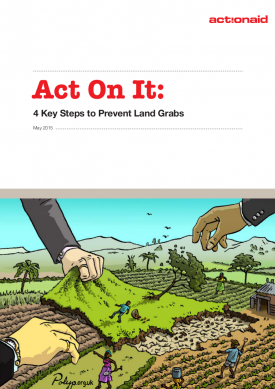Training Package Trainers Guide: Tools to support Transparency in Land Administration
This publication forms a part of a two volume training package on Tools to Improve Transparency in Land Administration. The training package comprises a Training Toolkit and a Trainers' Guide. The first provides content and the latter training methods. The publication is a product of a series of training workshops implemented across Sub-Sahara Africa, South and South East Asia. Under the leadership of the GLTN/UN-Habitat, the training brought together six universities from the global South and one from Europe.



